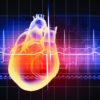![1]()
Opinion
COVID-19 mythconceptions
April 16, 2020
We are in a position where we need to take in what we can and assess the best data available.
![1]()
News
Sodium nitrite disappoints in cardiac arrest
April 16, 2020
The drug did not significantly improve patients’ chances of being admitted to or discharged from the hospital alive in a new study.
![1]()
News
COVID-19 cases highlight longstanding racial disparities in health care
April 16, 2020
Data on higher infection and death rates in African Americans from COVID-19 may serve as a call to action.
News
Troponins touted as ‘ally’ in COVID-19 triage, but message is nuanced
April 14, 2020
A consequence of not measuring hs-cTn may be to “ignore the plethora of ischemic and nonischemic causes of myocardial injury related to COVID-19,” a U.K. team argues.
![1]()
News
Cardiology groups push back on hydroxychloroquine, azithromycin for COVID-19
April 8, 2020
Both drugs are known to cause torsade de pointes and increase the risk of other arrhythmias, say the AHA, ACC, and HRS.
News
COVID-19 linked to multiple cardiovascular presentations
April 7, 2020
Temporary hemodynamic support is shown to help patients with cardiogenic shock, according to case studies.
News
New guidance on management of acute CVD during COVID-19
March 31, 2020
Expert guidance comes from Chinese cardiology and infectious disease specialists on how to manage severe emergent cardiovascular disease during COVID-19.
News
Dapagliflozin trial in CKD halted because of high efficacy
March 30, 2020
An independent data monitoring committee recommended stopping the trial.
News
Larger absolute rivaroxaban benefit in diabetes: COMPASS
March 29, 2020
The new vascular low dose of rivaroxaban has had a slow start, but these results may stimulate use in patients with diabetes and stable disease.
![1]()
News
Wuhan data link COVID-19 with myocardial damage
March 27, 2020
Findings from 603 COVID-19 patients at two Wuhan hospitals showed a high incidence of myocardial damage that predisposes to higher mortality.




